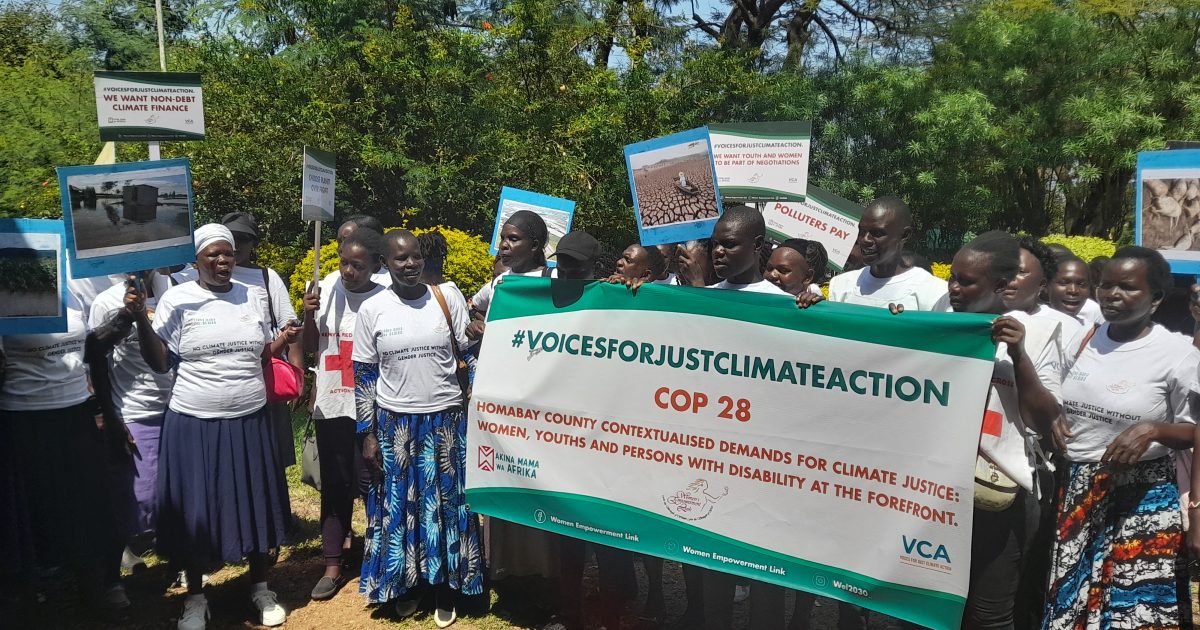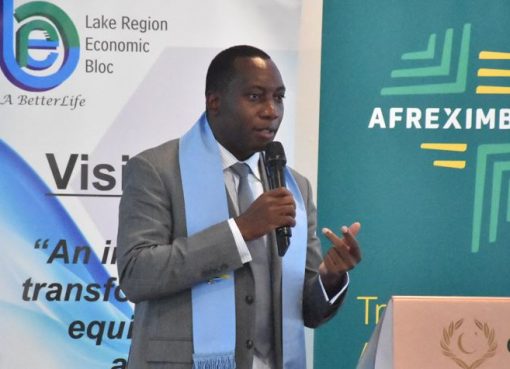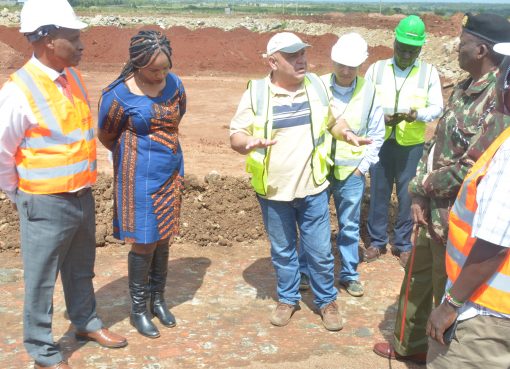Civil Society Organizations have urged national and county governments to develop sustainable climate change measures to foster resilient communities and sustainable economies.
Climate change activists have called for the government to prioritize preparedness over response in disaster management. Willis Okeyo, an ambassador of climate change reiterated it is cheaper to prepare for any eventuality in matters of disaster but expensive to respond to the same.
During a protest by climate activists demanding for climate justice for victims of climate change, especially women, children, youths, and people with disabilities. They claimed that this group is the most affected when disaster hits. Children suffer as a result of climate change in that their education gets disrupted, and they are also afflicted by waterborne diseases due to water scarcity among other effects brought up by climate disasters.
Activists protested against climate change, using slogans like “We want non-debt climate finance,” “Polluters Pay,” and “Climate change is a human rights issue. “Okeyo emphasized they are targeting women who are vulnerable and most impacted by the effects of climate change, insisting that these issues should be highlighted at the ongoing COP28 UN climate summit in Dubai.
Climate change activists are promoting the voices of women, disabled individuals, and vulnerable groups, emphasizing their importance in decision-making processes. The speaker emphasized the need for compensation for the loss and damage caused by climate change, stating the international community must also bear the responsibility.
The protesters said there is no climate justice without justice to gender, which is the more reason they wanted compensation for the female gender. The Project lead, Women’s Empowerment Link (WEL) Gertrude Tala said they were joining other women all over the world under Women and Gender Constituency to demand climate justice.
Climate Justice is all about compensating victims of climate change who have had little to zero contribution to pollution which is the causative agent of climate change according to Ms. Tala. Women, marginalized groups, and others are most affected by climate change, demanding money for loss and damage, as they face different impacts and destabilization.
Ms. Tala noted these people do not own vehicles, or industries nor are they associated with fossil fuel use but are the ones whose houses have been submerged during this season of heavy rains and flash floods. The speaker emphasized the need for compensation for the loss and damage caused by pollution, emphasizing that those most affected are not the most affected.
By Sitna Omar





